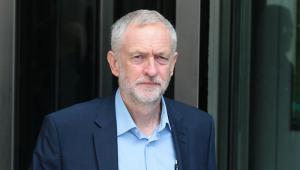Labour may have been in power for 13 years, the country may be fed up of the same old faces but the party’s election manifesto, hammered out by one of Labour’s most interesting new figures, Ed Miliband, is shaping up to be an important document. It has a mix of radicalism and rationalism, and a receptiveness to the new political situation. More significantly, it is a recognisably Labour manifesto, creating clear dividing lines with the Tories.
Some initial ideas, such as free school meals for all and a National Care Service, have not survived the affordability/electability criteria demanded by one of the closest run elections for decades. But Labour is still proposing a People’s Bank, modelled on the Post Office, providing local credit unions with access to funds, and offering an alternative (and presumably safer) bank to the better off.
With final agreement to come this week, the party will propose a substantially raised minimum wage, to be funded by curbing higher civil service pay, and a National Democracy Day, with referenda pledged on both the voting system and reform of the House of Lords.
Other ideas like broadband for all, guarantees in health and education, proposals that failing police forces be taken over by other areas and a green investment bank have a similar freshness and relevance to them.
Miliband has been sniped at by Blairite remnants within his own party for the supposed extremism of some of his ideas. But it is precisely this radicalism - carefully costed, and hardly revolutionary - that cheers the many of us who look to Labour for inventive ideas to promote social justice and greater social cohesion.
Anyone looking for clear dividing lines between the parties will find them not just in individual proposals but in the wider points of reference; for instance Miliband’s argument that shared interest and self interest can co-exist and that a renewed welfare state must be inclusive, not just a residual safety net for the poor, which is undoubtedly what a Tory government would usher in.
But the manifesto is also a tribute to the important and necessary dangers that democracy inevitably poses to the powerful. As Miliband said in a recent interview: 'After these two crises (on banking and political expenses) people want a sense that we've learnt lessons from the past. It's hard when you've been the government for 13 years ... but we are at a different moment, we are in a progressive moment.’ Fingers crossed that we really are.











